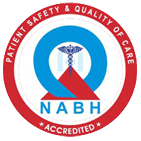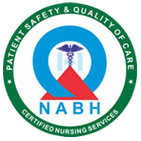FOLLOW THE MISSION HOSPITAL




Antihistamines are one of the most important medications for treating allergies. Antihistamines help relieve, sneezing, itching, runny nose and may help reduce congestion. Your doctor can prescribe a “non-sedating” antihistamine to help manage your symptoms without drowsiness. Many over-the-counter antihistamines cause drowsiness and carry warnings about mental alertness, especially while driving or operating machinery.
Antihistamines help relieve symptoms by blocking the action of histamine. Histamine is a naturally occurring substance that is released by the immune system after being exposed to an allergen. When you inhale an allergen, mast cells located in the nose and sinus membranes release histamine. Histamine then attaches to receptors on nearby blood vessels, causing them to enlarge (dilate). Histamine also binds to other receptors located in nasal tissues, causing redness, swelling, itching, and changes in the secretions. By blocking histamine receptors, antihistamines prevent symptoms.
Decongestants are available in nasal spray or pill form. Decongestants in pill (oral) form generally take longer to work, whereas nasal sprays tend to provide more immediate relief of symptoms. The pills are recommended for longer use, because decongestant nasal sprays used more than 5 to 7 days may actually worsen symptoms.
If you are taking medication to lower blood pressure, ask your doctor about taking decongestants, as they may raise blood pressure. Decongestants may also cause insomnia, irritability, or restrict urinary flow. Decongestants are not recommended for people with glaucoma.
Nasal tissues swell in response to allergen exposure, causing increased fluid and mucus. Decongestants shrink swollen nasal tissues to relieve symptoms of nasal swelling, congestion, and mucus secretion.
Some allergy medications contain both an antihistamine and a decongestant to relieve multiple symptoms, including itching, sneezing, and a runny nose. Combination medications also help clear the nasal passages. Combination medications are available over-the-counter and by prescription. The prescription combination medications are less likely to cause drowsiness.
Nasal sprays help prevent nasal allergy symptoms. Nasal sprays are available in these forms:
Immunotherapy, or allergy shots, may be the most effective form of treatment if other medical management techniques have failed. Immunotherapy is currently indicated for people who have allergic rhinitis, allergic asthma, and bee sting or fire ant allergies.

A Unit Of Durgapur Medical Centre Pvt. Ltd.